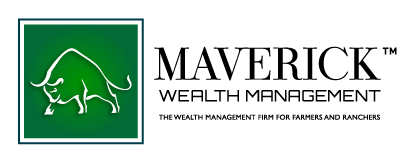The Times Have Changed, so how much should you put aside?
Emergency funds are no longer one-size-fits-all. To find your number, answer two key questions:
How long would it take you to land a new job if you lost your current one?
If it would take you six months, then you need to have cash on hand equal to at least six months worth of expenses. But if you’re a senior executive, bigger is better because it could take 12 months or longer to find a new job after a layoff. There are always ways to help determine what your number is.
Have a trained professional at Maverick Wealth Management look over your personal situation to see what will be appropriate for you and your loved ones.
How safe do you want to feel?
If you’d sleep easier knowing you have a large buffer, build up your stash to your comfort level. Let us show you how you might be able to work toward your goal.
There is no price tag for independence.
In today’s uncertain job market, you can never be too conservative in saving for your income needs. If you’re married and both you and your spouse work, you need a minimum of six months’ worth of expenses. If you’re single or only one partner works and you have kids, you may need a year’s worth.
If you’re near or in retirement, your need for cash reserves might even be greater. Based your situation, you may need at least two or three years’ worth of cash in a liquid account. That way, when a bear market comes growling, should have enough on hand to pay your bills without selling deflated assets.
Personalize the Numbers
How do you come up with an accurate dollar amount to save? It is simple math. You need to cover your expenses. Figure out how much income you would need to replace each month if you lost your job. We recommend you start by adding up what you spend on basics such as housing, food, health insurance and cell-phone service. Also, make sure you count costs that may not come up each month, such as your property-tax bill, your car insurance payments, and essential household repairs.
Now, Where Do I put the Cash?
This is where an experienced Wealth Manager may help. With knowledge of what accounts might be appropriate, a professional can help you work towards your goals. If you have a big stash of extra cash, you might consider a multi-tiered approach, and create several different outlets to help increase your savings.
No matter where you put your emergency money, setting up an automatic transfer, so you don’t have to remember each month, might be beneficial. Lastly, try putting aside more than you think you can. Nobody ever complained that they saved too much.
A little emergency money is better than none. Start today!
